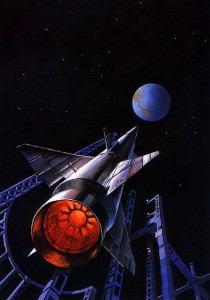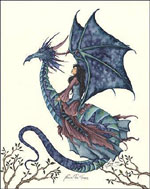On a LinkedIn discussion board, I’ve been following a topic about science fiction/fantasy. The opening question was: “Do superheroes count as Sci-Fi or Fantasy? ” As usual for these kind of things, the discussion has wandered all over the map. I think it is necessary to define the difference, if any, between the two genres before you can assign characterizations to them.
As I remember from my childhood, they used to be more separated. There was Science Fiction and there was Fantasy. Science Fiction used to be extrapolated from actual science. It was usually based, at least, on some kind of futuristic hardware and space travel by humans like us. You couldn’t say it was based on fact, exactly, but it did need to mostly follow the rules of physics as we know it.
Fantasy, on the other hand, had a foundation in mythology. It involved things we firmly believed, at that time, to be impossible like unicorns, dragons, mental telepathy and magic. In my opinion, one reason for the success of Star Wars and other such stories is the fact that the creators found a way to combine the two. I think it is a rare thing these days to find new stories that are purely one or the other. I don’t need to believe it is possible to stay involved in the story. I like the term Science Fantasy, to me it melds the two together in a satisfactory way.
As long as the author can provide a logical basis for what’s going on, I will just enjoy the ride. A parallel discussion in the Sci-Fi discussion group asked the question: What makes you more or less willing to suspend disbelief?” It seems to me that the difference between Science Fiction and Fantasy closely follows that line of thought. If you don’t need to suspend disbelief, it’s Science Fiction. In other words, it could happen, we simply haven’t gotten there yet. Whereas, Fantasy usually requires the suspension of disbelief because it doesn’t have that grounding in physics that we can understand.
I am quite willing to suspend disbelief. I don’t require a basis in scientific reality, just a consistency with the rules of the story itself. As a reader, I have frequently been amazed and slightly intimidated by the rich imagination of those who successfully create an entire world from “whole cloth.”
However, I think, for most people, there is a need to stay within certain “natural laws,” i.e. gravitational pull, air to breathe, etc. I do get irritated with authors who bypass these things for simple convenience rather than work within them. If your premise fails to follow a logical path within the parameters you set, I will get frustrated. I may finish the story, but I probably won’t go looking for your other work.


Comments are closed.